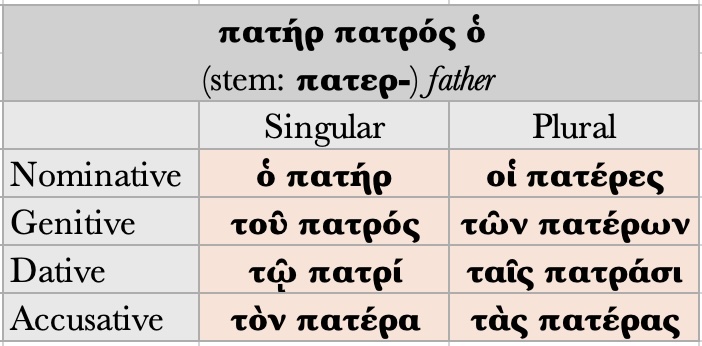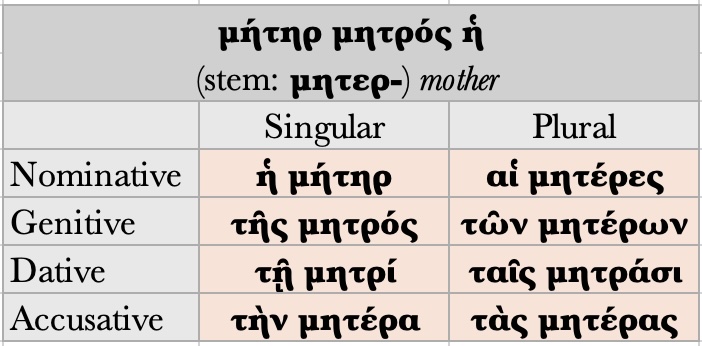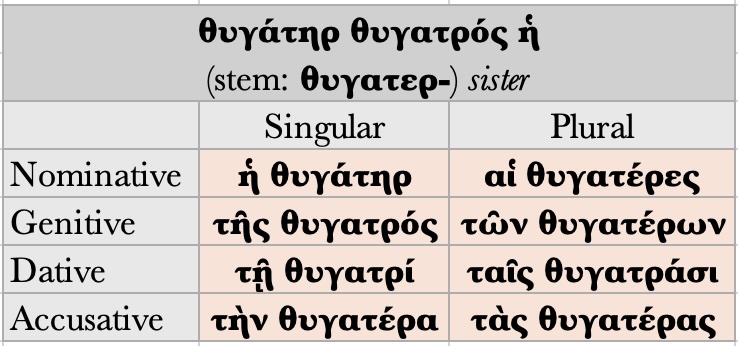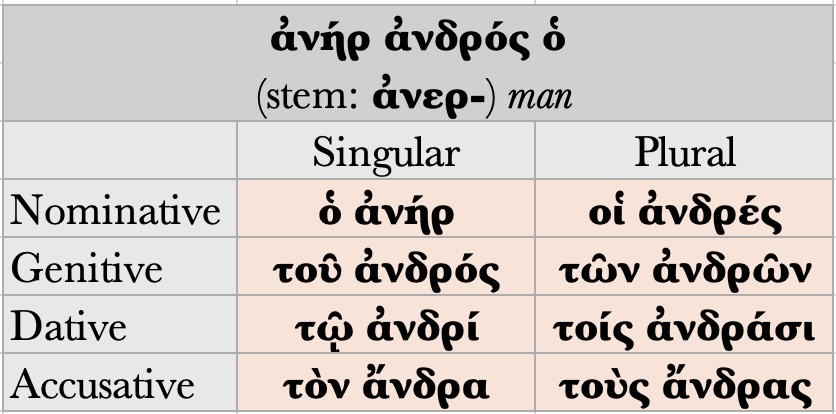23.8 More stem and accent changes when an ε directly precedes the ρ: –ερ (S 262, G 106). The good news is that the basic case endings do not change. The stem changes, however, do require memorization.
There are four common nouns of this type (S 262, G 106). As you memorize the inflections for each, note the following patterns for the first three nouns:
The vowel stem –ερ becomes –ηρ in the nominative singular, due to the loss of a sigma resulting in COMPENSATORY LENGTHENING.
The vowel stem –ερ becomes simply –ρ in the genitive singular, and dative singular and plural.
The accent is on the ultima in the genitive and dative singular, on the penult in the accusative singular and all forms of the plural.
The insertion of an –α– between the ρ– and –σι in the dative plural.
23.12 For the fourth noun, note the following patterns:
- The vowel stem –ερ becomes –ηρ in the nominative singular, due to the loss of a sigma resulting in COMPENSATORY LENGTHENING.
- The vowel stem –ερ became simply –ρ in all oblique cases!
- The resulting forms (e.g. ἀνρός, ἀνρί) gradually developed a sound change that inserted a δ between ν and ρ (S 130, G 106). (Likewise, the French word cendre, “ash,” comes from the Latin cinerem!)
- The accent pattern matches the other three –ερ nouns, with the exception of the genitive plural ending: ἀνδρῶν.








